‘Suspiria’ cast and director talk about aging, horror movies, and working on the film
Los Angeles — Dakota Johnson, Tilda Swinton, Chloe Grace Moretz, Jessica Harper and director Luca Guadagnino (“Call Me By Your Name”) talked to us recently about their latest movie, “Suspiria,” a supernatural horror film based on the 1977 film directed by Dario Argento.
Jessica, who was the lead in the original film, appears as Anke Meier, while Tilda portrays three characters (Madame Blanc, Helena Markkos and Dr. Jozef Klemperer). In the movie, Dakota portrays Susie Bannion while Chloe acts as Patricia Hingle.
The movie is about a young naïve girl, Susie Bannion, who joins a dance troupe which is actually run by a coven of witches. Director Luca mentioned that the new film is a homage to the 1977 film rather than a remake.
Below are excerpts of our conversations with them:
Dakota Johnson
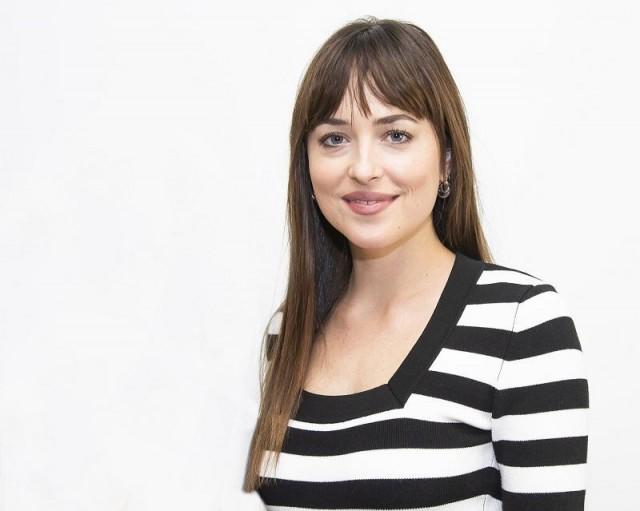
On what the original “Suspiria” movie meant to her:
I saw the original film after Luca had asked me if I would make this film with him. We were on the set of “A Bigger Splash” and he had asked if I had seen “Suspiria” and I said no.
Then he asked if I would do this with him and I said yes. I saw the film and I understood so many of the influences from some of my favorite filmmakers. It was as though a whole world had opened to me and I didn’t know about it before. So I just felt so lucky and I felt so excited.
On whether the horror movie genre is something an actress has to go through:
I don’t know if it’s a thing that you go through, if it’s a phase that you go through. Apparently, it’s a phase that I am going through or went through last year when I made these movies. I never thought that I would be into genre films, not as intense. But I really love them. I think I had to, for so long I only understood horror films from a very objective position and I didn’t find the love in them, but I guess I have in these last couple of movies and in “Suspiria.” It’s a love story.
On her relationship to the German Expressionist Dance:
I knew very little about the German Expressionist Dance. I knew the obvious expressionist dance. I grew up doing ballet but not seriously, only as you do when you are a young child. So when I was preparing for the film two years prior to filming, I was constantly watching the work of Mary Wigman and Pina Bausch.
I learned this from the dancers as well who were training me and helping me to do to the choreography and really perfect everything. But there’s this raw, primal energy that comes through this style of dance that is more honest and is aggressive. It evokes such intense emotion in the audience because it’s beautiful but it’s not necessarily pretty.
I found that to be so exhilarating because in ballet, you go against gravity and you try to make everything look beautiful and not painful. You have a stoic face and you make no sound and you are light as a feather.
But this is unapologetic and you grunt, the breath that naturally comes from your soul is welcomed and the sound from your feet on the floor is welcomed. It’s like existing in your body. I had not experienced that as a woman in the world and I found it to be liberating.
I was really inspired by these young women who are professional dancers, but I was inspired by the fact that they have to move their bodies in order to survive, in order to live. I thought that was amazing, not only do they feel an obligation to move their bodies, but they feel so grateful for them and such a respect for their bodies, whereas we grow up, girls now grow up comparing themselves to Instagram models and they don’t have respect for their bodies.
On looking back at her “Fifty Shades of Grey” experience:
It was a very intense, educational and fun experience. I love those movies. I don’t have anything bad to say about them. I am very grateful to them. I learned so much about myself, about collaboration, about the industry, about how important it is to have fun doing this job. I wouldn’t change anything about it.
Would I do it again? Yeah, if I were back in my circumstances before those movies, I would for sure do them again. They have led my career to a really incredible place and I have also grown so much from them. So even if there were some bumps in the road, I learned from them and they made me resilient.
On working with Jessica Harper who was on the original “Suspiria” movie:
She just brought such a legacy to this. We all felt like bowing to the rock star that is Jessica Harper when she was on set. I certainly did. I was just like wow, it’s you. But it’s just so cool. She is so cool and it’s an homage to the original film. It’s an homage to her and it makes everything full circle. It’s really a beautiful thing that you can do in cinema.
Tilda Swinton
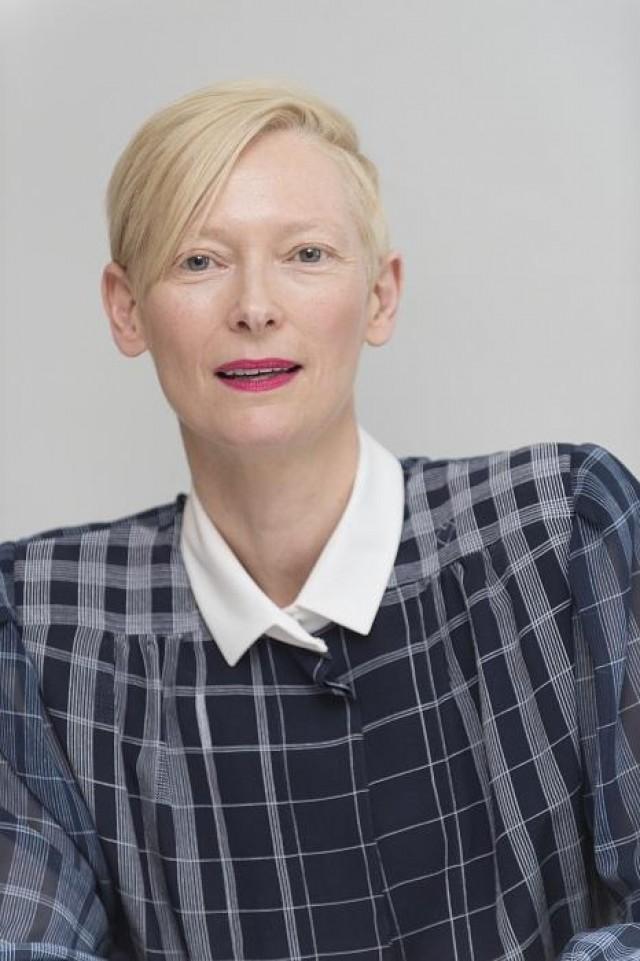
On how it is for her as an actor to look in the mirror and not see herself at all:
Oh, it's my dream. It's all I ever wanted. When I made my first film, I remember feeling this sense of defeat that if I made a second film, it was going to be me in there and that's not necessarily what I ever wanted to be.
I have this dream of being in one film and that's it. I'm a great admirer of Robert Bresson who worked with, he never called them actors, models. They were what we called real people who were in one film and that was it. That's my dream and so I've always tried to impossibly be different for my own amusement as much as anybody else's.
On age and aging:
My beloved father died a week ago. He was 93 so I think about age a lot at the moment. I'm absolutely determined to be in my 90's. I see no reason not to be. I'm going to try and stay healthy. I'm up for it. I'm in the very lucky position that I feel my life is getting more and more interesting, more fun, easier in many ways and there's very little to date, I mean, wait, maybe next something will fall off.
I will lose something that I don't want to lose but so far it's getting better. I wouldn't frankly want to be 21 anymore. I think people of 21 have obstacles now that my generation didn't have and I'm with them in absolutely spirit and solidarity. But it's all to play for and I'm enjoying getting older. I don't feel like there's a downside at the moment but maybe next week I can tell you something.
On feeling like a changed person:
I'm sure, yes. How would I say I've changed? One thing that's happened in my life and maybe this is true of all of us is that, as you roll on, you get more accurate about yourself and what you love and what doesn't make you feel comfortable.
So if you're not a masochist and I am not a masochist, you step aside from the things that are stressful on you or inaccurate and you just spend more and more of your energies creating a comfortable environment so you just choose the good stuff. You choose to be comfortable and you choose to be happy.
I suppose when I was younger I didn't know what I know now, which is that happiness is a decision. You just make that decision and there you are. I thought you had to earn it or something but I think all young people tend to have that fantasy and that's a great blessing getting older. You realize that it's in your hands.
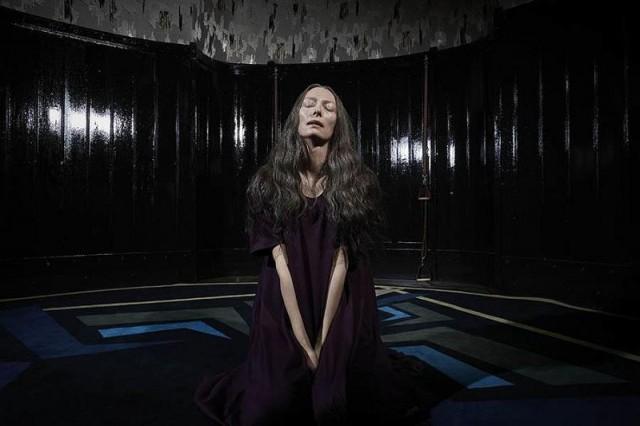
On when she got comfortable with her unique look:
It's not unique in my family. We all look like this. It's maybe unique in this town [but] I grew up in a tribe that looked like this and it is true that when I first started making films, or even being photographed, people didn't look anything like me. I remember when I was first photographed not wearing any mascara there was a shock horror.
People have slightly got over that now which is a good thing. What we do to the world when we walk into a room particularly as a performing artist it's a really important part of the package. I'm perfectly grateful in a way that I wasn't when I was maybe 11 or 12 to look like this.
I was an odd one but I don't mind being odd anymore. There you are. That's another good thing about growing older and I just don't mind looking odd anymore. I am here for all the freaks.
Chloe Grace Moretz
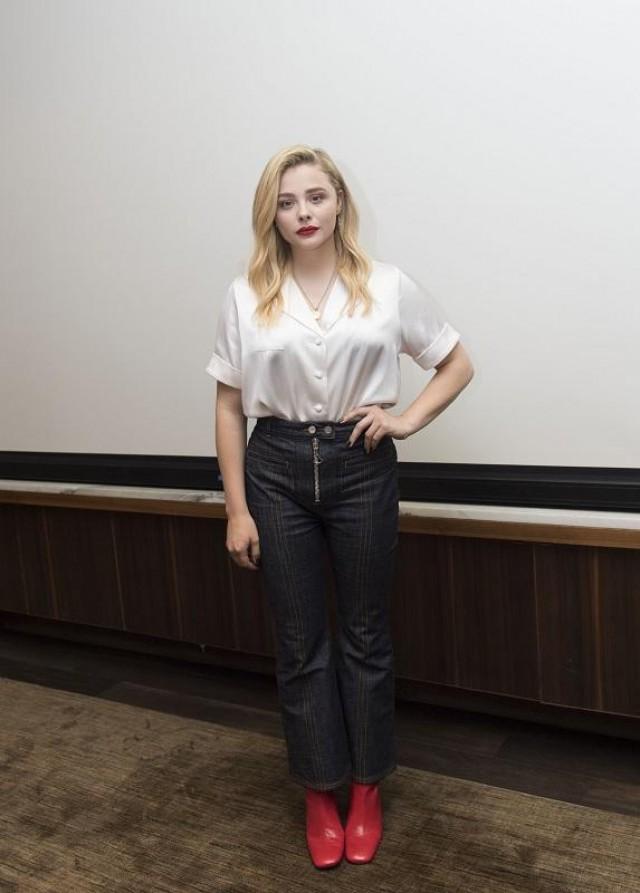
On working with 40 women:
There was an inclusivity that was really wonderful to live with it outside of filming. We were all staying in the same hotel, so every night after work, we would go back and eat dinner together at these big tables and we would drink wine and just break bread and just enjoy each other’s company. Sometimes it can be a hierarchy and there can be an ego. It trickles down from the top from Tilda and Luca that they come to set as humans and they don’t come to set as actors or thespians or directors. They just live and exist and try and make art. They know that the best art is born within safety, vulnerability and acceptance.
This was one of the most accepting sets not just from working with Luca and Tilda but also from working with all these wonderful women. I just feel very blessed to have gone from like I said, “The Miseducation of Cameron Post” which was a fairly female crew and set, on top of that a very queer crew and set, which was so inclusive and invigorating for me, and then walking onto this. It was like this is where I want to be. This is why I took a year and a half off, because I wanted this to be the step in the right direction of my future career and who I am as a woman.
On being directed by Luca Guadagnino:
I found that he doesn’t really see gender. Luca is someone who sees humanity and he sees sadness and fear. He sees anger and he sees love. He sees lust and sex. But he doesn’t see gender and so he doesn’t approach it as a woman being directed and he doesn’t approach it as a man directing a woman. He just approaches it as how would a woman react and what do we need to evoke and portray in this sequence to be able to have the audience understand what we are trying to get across.
Jessica Harper

On how director Luca Guadagnino pitch this project to her:
He didn’t actually have time to explain it, because he called me with the intention of pitching it to me and asking me if I would like to do a cameo in this movie. But I cut him off very quickly and I said yes, I’ll do it!
He said, "hello Jessica, this is Luca." And I said "okay, you got me. You got me at hello." So we really didn’t have that big conversation honestly, joking aside. There was that initial conversation where he asked me if I could do it and he asked me if I could speak German which I lied and said I could. Then the next thing I knew, I was on set.
On Dakota Johnson playing her role in the original “Suspiria”:
In my youth, I was a modern dancer so I didn’t find the dancing challenging. Also to be fair, Dakota also had much more intense choreography in her role than I did with mine. Mine was pretty straightforward as I recall, that wasn’t a problem for me.
As far as giving her tips, I actually didn’t meet Dakota until I walked on the set and they were already in the middle of shooting or had shot half the movie already. She delivers a really lovely performance and I honestly don’t feel that she needs any advice or tips from me. She really nailed it.
On her experience of doing the new “Suspiria”:
Watching the new “Suspiria,” informed my understanding retrospectively of my Susie, who she really was and what was going on with her, which I don’t think I quite understood as clearly then as I do now.
Because Dakota’s Susie goes to school of dance already with a clear inkling that she has something extraordinary going on but maybe not a full understanding of it. Then of course by the end, she gets to express that power completely.
My Susie similarly has a certain power that she is carrying but I am not sure how aware she is of it, until again, at the very end of the movie, when I walk out of the dance school into the street as the movie ends and I have a little smile on my face.
It’s a similar ending to Luca’s movie, in that I too come to the understanding of my power although I certainly don’t express it in such grand terms as Dakota does. But there is that common thing in both of our Susie’s I believe, of a sense of power and then ultimately an expression of it to varying degrees.
Luca Guadagnino (director)
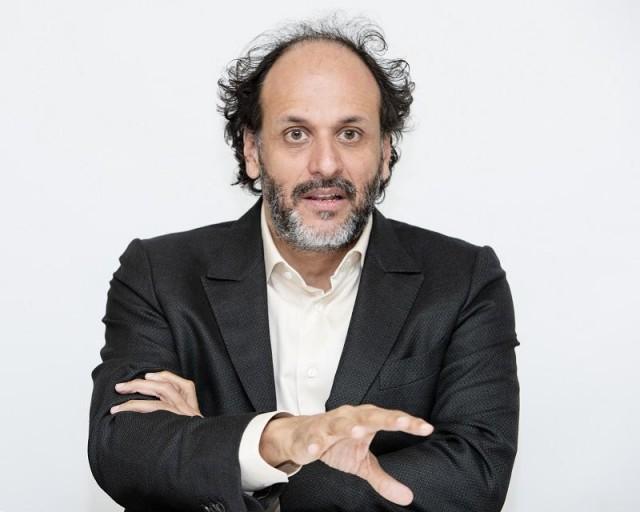
On the dance of distortion and death:
That was a beautiful intuition of David Kajganich, the writer. I remember we were talking through the process of discussing how to bring this to life and he talked about what you just said. He said what about counter juxtaposing absolute harmonious beauty of the body movement and a hideous disturbing image of another body being moved so that as a sort of experiencing the horror genre, like typical in the horror genre, you do this. It's typical. It's like in the '50s movies you see like “The Black Lagoon.” I wanted to make a movie where you can do this but also you want to say what do I do, what do I choose.
On how he made the choices of making it deeper and darker:
It's the sum of things. On the one hand, there are conscious choices like we knew the movie was Dario's version in 1977 and that is a very important year in 20th Century history. Let's say the year in which the promises of the '68 are crushed and thrown away and that was a conscious decision. We are going to keep the period but then there are many intuitive ones that grows and they expand in the encounter with all the filmmakers who you do the movie with. It was important to never let go of a sense of uncompromising relentlessness for this film for all of us. — LA, GMA News




